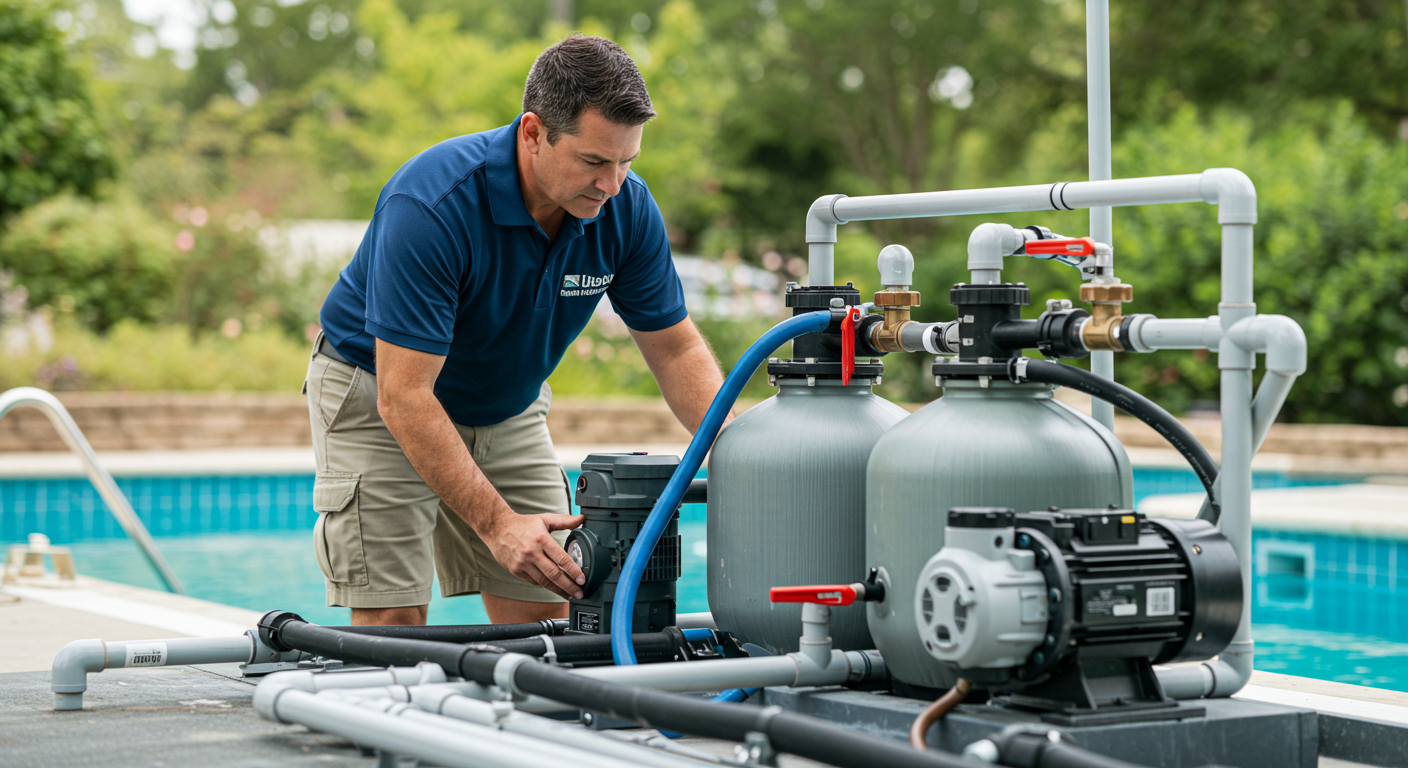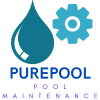Can You Do Pool Maintenance Yourself
What Is Pool Maintenance and Why It Matters
Pool maintenance means taking care of your pool so it stays clean and safe. It includes jobs like cleaning out leaves, brushing the pool walls, checking the pump, and testing the water. If you don’t do these things, your pool water can get dirty or unsafe to swim in. That’s why many people use a pool maintenance service to help them keep their pool in good shape all year.
Taking care of your pool helps it last longer and keeps you and your family healthy. A clean pool means more fun and less worry. Regular pool service can stop small problems before they turn into big, expensive repairs. Whether you do it yourself or hire help, keeping your pool in great condition is very important.

Pros and Cons of DIY Pool Maintenance
Doing your own pool care can be a good way to save money and learn how everything works. When you do the cleaning and chemical checks yourself, you’re more in control. You can set your own schedule and learn more about how your pool runs. But some people still choose a pool maintenance service because it saves time and they don’t have to worry about making mistakes.
There are also some hard parts to doing it yourself. You need the right tools and chemicals. It can take a lot of time, especially if your pool is big or has special features. If you don’t feel sure about doing it alone, using a professional pool service might be a better choice. They know what to look for and can fix problems quickly.
Pros and Cons of DIY Pool Maintenance
Doing it yourself has some good points and some hard parts:
Pros:
- You save money.
- You learn how your pool works.
- You can work on your own schedule.
Cons:
- It takes time and effort.
- You need to learn about chemicals.
- Some jobs may be too hard without help.
Must-Have Tools for Home Pool Care
To clean and care for your pool, you need a few tools.
Skimmers, Brushes, and Vacuums
Use a skimmer to scoop out leaves and bugs. Use a pool brush to clean the walls and floor. A pool vacuum helps remove dirt from the bottom.
Pool Water Test Kits and Chemicals
You need a test kit to check the water. You also need pool chemicals like chlorine and pH balancers to keep the water safe.
Safety Gear and Storage Tips
Wear gloves when using chemicals. Keep tools and chemicals in a safe, dry place away from kids and pets.
How to Perform Basic Pool Maintenance
Here are simple steps to follow to keep your pool clean and clear.
Daily Tasks: Skimming and Monitoring
Use the skimmer every day to take out leaves, bugs, and dirt. Check the water to make sure it looks clean and doesn’t smell bad.
Weekly Tasks: Brushing, Vacuuming, and Testing Water
Brush the sides and bottom of your pool every week. Vacuum the pool and test the water to make sure the chlorine and pH are balanced.
Monthly Tasks: Shocking the Pool and Equipment Checks
Once a month, you should “shock” the pool. That means adding more chlorine to kill bacteria. Also, check the pump, filter, and other equipment to make sure they are working right.
Understanding Pool Water Chemistry
Pool water needs the right mix of chemicals to stay clean.
Balancing pH, Alkalinity, and Chlorine
- pH tells you if the water is too acidic or too basic.
- Alkalinity helps control pH.
- Chlorine kills germs and keeps water clean.
Identifying Signs of Chemical Imbalance
If your pool water is green, cloudy, or has a strong smell, the chemicals may be off. Testing helps you fix the problem.
When to Call a Pool Service Professional
Sometimes, doing it yourself isn’t enough.
Recognizing Problems Beyond DIY Repair
If your water won’t clear up, or your equipment breaks, it’s time to call a pro. They can fix big problems faster and safer.
How Pool Technicians Can Save You Money Long-Term
A professional can help you avoid damage that costs more later. They know how to spot problems early.
Common DIY Mistakes to Avoid
- Adding too many chemicals
- Forgetting to test the water
- Not cleaning the filter
- Skipping regular cleaning
Avoiding these mistakes helps your pool stay nice and safe.
Final Tips for Successful Pool Maintenance
- Make a schedule and stick to it.
- Check your pool every day.
- Ask for help if something seems wrong.
- Keep learning—taking care of your pool gets easier over time.
